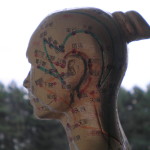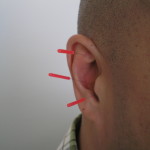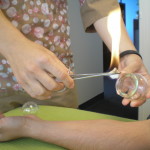TCM Philosophy
Yin & Yang
 Yin and Yang are cornerstone to understanding Traditional Chinese Medicine (TCM) theory, diagnosis and treatment since all organ systems, body parts, environmental factors can be broken down into facets of Yin and Yang. Qi and blood are prime examples of this relationship in the fact that Qi is yang in relation to blood, while blood is yin in relation to Qi, however both have characteristics of each other.
Yin and Yang are cornerstone to understanding Traditional Chinese Medicine (TCM) theory, diagnosis and treatment since all organ systems, body parts, environmental factors can be broken down into facets of Yin and Yang. Qi and blood are prime examples of this relationship in the fact that Qi is yang in relation to blood, while blood is yin in relation to Qi, however both have characteristics of each other.
 Qi is the ‘energy’ that travels via meridians or channels through the body to perform several essential functions. It is the smooth flow of Qi that maintains harmony within the organ systems of the body. Health comes from the connection of the body, mind and spirit working in harmony with nature. Nature is represented in the form of the five elements of water, wood, fire, earth and metal. These elements are interrelated and correspond to the organ systems of the kidney-bladder, liver-gallbladder, heart-small intestine, spleen-stomach and lung-large intestine.
Qi is the ‘energy’ that travels via meridians or channels through the body to perform several essential functions. It is the smooth flow of Qi that maintains harmony within the organ systems of the body. Health comes from the connection of the body, mind and spirit working in harmony with nature. Nature is represented in the form of the five elements of water, wood, fire, earth and metal. These elements are interrelated and correspond to the organ systems of the kidney-bladder, liver-gallbladder, heart-small intestine, spleen-stomach and lung-large intestine.
 Optimal functioning of these systems depends on the smooth flow Qi throughout the body. If the flow of Qi is disturbed the resulting imbalance may manifest as pain, sleep disorders, poor energy, digestive trouble, anxiety and reduced immune function to name but a few. In order to return the body to a state of health and equilibrium one or more therapies are used to create an individualized health plan.
Optimal functioning of these systems depends on the smooth flow Qi throughout the body. If the flow of Qi is disturbed the resulting imbalance may manifest as pain, sleep disorders, poor energy, digestive trouble, anxiety and reduced immune function to name but a few. In order to return the body to a state of health and equilibrium one or more therapies are used to create an individualized health plan.
In addition to clinical therapies, activities such as Qigong and Tai Chi also have a positive impact on the flow of Qi in the body. Strengthening and regulating the body’s energy through these activities assists in maintaining health or treating various conditions.
Meridian Flow Acupuncture can provide therapies to ensure these systems are functioning optimally and can review and determine which therapies would best work for you and your specific needs.






